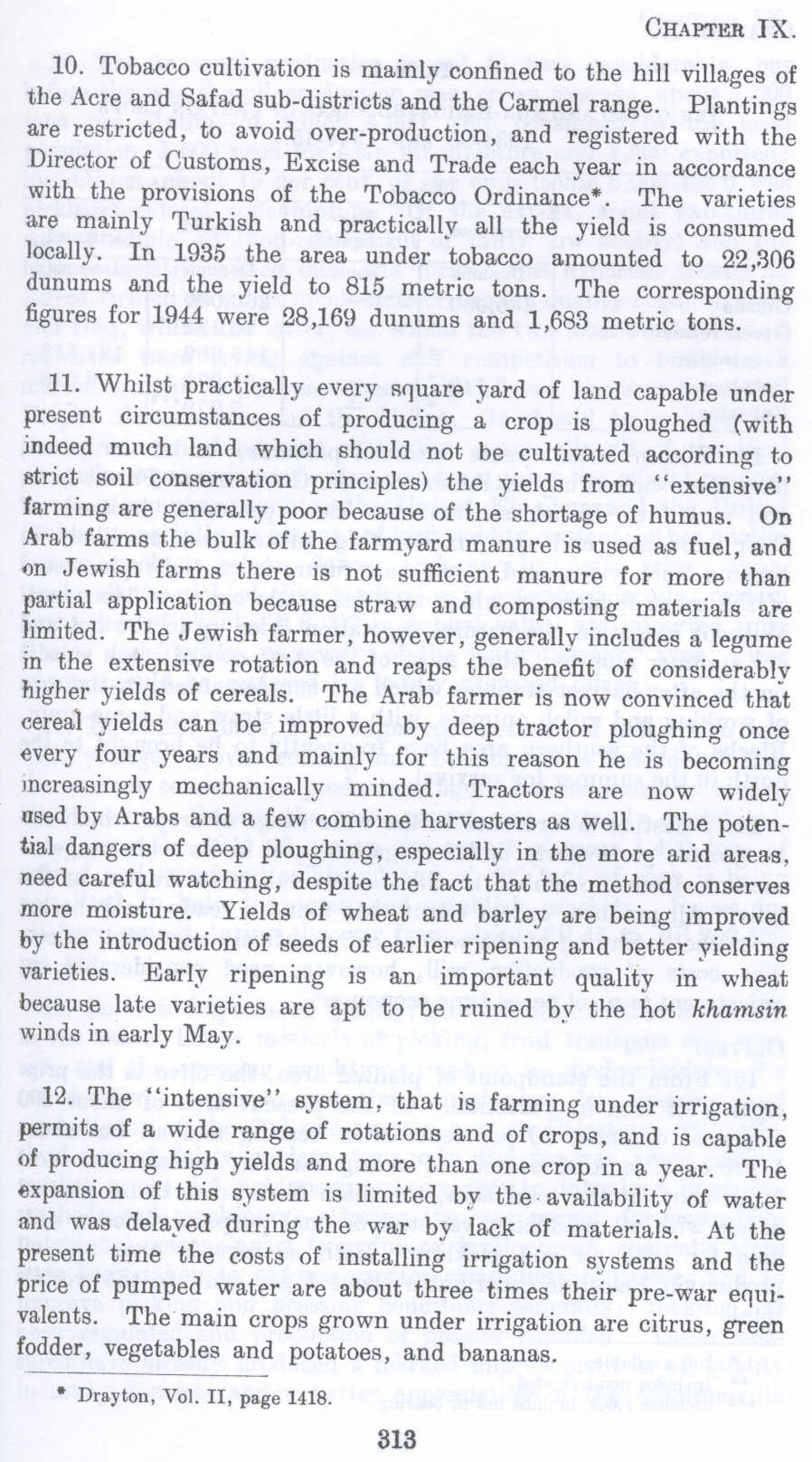| Prev | Next |  |
| Prev | Next |
| PalestineRemembered | About Us | Oral History | العربية | |
| Pictures | Zionist FAQs | Haavara | Maps | |
| Search |
| Camps |
| Districts |
| Acre |
| Baysan |
| Beersheba |
| Bethlehem |
| Gaza |
| Haifa |
| Hebron |
| Jaffa |
| Jericho |
| Jerusalem |
| Jinin |
| Nablus |
| Nazareth |
| Ramallah |
| al-Ramla |
| Safad |
| Tiberias |
| Tulkarm |
| Donate |
| Contact |
| Profile |
| Videos |
British Mandate: A Survey of Palestine: Volume I - Page 313 |
Disclaimer
The above documents, article, interviews, movies, podcasts, or stories reflects solely the research and opinions of its authors. PalestineRemembered.com makes its best effort to validate its contents.


Post Your Comment
*It should be NOTED that your email address won't be shared, and all communications between members will be routed via the website's mail server.
10. Tobacco cultivation is mainly confined to the hill villages of the Acre and Safad sub-districts and the Carmel range. Plantings are restricted, to avoid over-production, and registered with the Director of Customs, Excise and Trade each year in accordance with the provisions of the Tobacco Ordinance". The varieties are mainly Turkish and practically all the yield is consumed locally. In 1935 the area under tobacco amounted to 22 ,306 dunums and the yield to 815 metric tons. The corresponding figures for 1944 were 28,169 dunums and 1,683 metric tons.
11. Whilst practically every square yard of land capable under present circumstances of producing a crop is ploughed (with indeed much land which should not be cultivated according to strict soil conservation principles) the yields from "extensive" farming are generally poor because of the shortage of humus. On Arab farms the bulk of the farmyard manure is used as fuel, and on Jewish farms there is not sufficient manure for more than partial application because straw and composting materials are limited. The Jewish farmer, however, generally includes a legume in the extensive rotation and reaps the benefit of considerably higher yields of cereals. The Arab farmer is now convinced that cereal yields can be improved by deep tractor ploughing once every four years and mainly for this reason he is becoming increasingly mechanically minded. Tractors are now widely used by Arabs and a few combine harvesters as well. The potential dangers of deep ploughing, especially in the more arid areas, need careful watching, despite the fact that the method conserves more moisture. Yields of wheat and barley are being improved by the introduction of seeds of earlier ripening and better yielding varieties. Early ripening is an important quality in wheat because late varieties are apt to be ruined by the hot khamsin winds in early May.
12. The "intensive" system, that is farming under irrigation, permits of a wide range of rotations and of crops, and is capable of producing high yields and more than one crop in a year. The expansion of this system is limited by the• availability of water and was delayed during the war by lack of materials. At the present time the costs of installing irrigation systems and the price of pumped water are about three times their pre-war equivalents. The main crops grown under irrigation are citrus, green fodder, vegetables and potatoes, and bananas.
_____________________________
* Drayton, Vol. II, page 1418.
Page 313